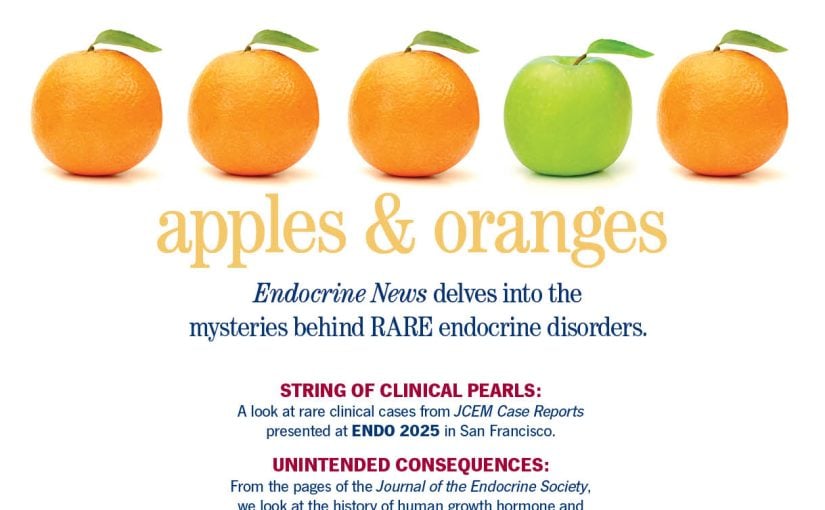
While the cherry blossoms and dogwood trees are starting to flaunt their spring colors as I write this, the offices of the Endocrine Society are also blooming with activity in anticipation of ENDO 2024 in Boston June 1 – 4!
To that end, we are hoping that this issue will serve as an impetus to get you excited about converging on Boston in a few months with thousands of your endocrinology colleagues from around the world. So as a “teaser” or an amuse bouche, if you will, Courtney Carson has written an overview of what to expect from the ENDO 2024 host city once the days of sessions are done. In “Cheers to Boston,” we have 10 pages of places to see, dine, dance, and even rock out to while you’re in town. Your in-the-know Endocrine Society colleagues have even weighed in with some of their favorites they think you should check out while you’re in town!
Senior Editor Derek Bagley is opening a potential “Pandora’s Box” in his article that details an ENDO 2024 session that examines the impact of artificial intelligence (AI) on the practice and science of endocrinology. “Artificial Intelligence in Health and Biomedical Research: The Future Is Now” promises to be a very intriguing plenary session that will hopefully answer the myriad questions endocrinologists have about this technology that remains a mystery to so many.
We feature another ENDO 2024 session that takes a deep dive – sometimes literally – into the research uncovering even more data about the impact of endocrine-disrupting chemicals (EDCs) throughout a lifetime, and even before. Kelly Horvath talks to several presenters of the session, “Endocrine-Disrupting Chemicals in Reproductive Endocrinology” for her article “In Harm’s Way” that looks at these chemicals have a jarring effect prenatally, postnatally, and even environmentally. Just a decade ago, the idea that EDCs might influence lactation was a very controversial idea,” according to Megan E. Romano, PhD, MPH, Department of Epidemiology, Dartmouth Geisel School of Medicine, Lebanon, N.H., “but we’re increasingly realizing that lactation is a vulnerable function, especially because mammary glands don’t actually reach full development until lactation begins. So, it makes sense that this extremely hormonally mediated process would be very sensitive to exogenous chemicals and EDCs.”

Derek also writes the feature, “Incarceration Nation” about a first-of-its-kind ENDO 2024 session entitled “Endocrine Care for Incarcerated Individuals.” This multi-session symposium will discuss healthcare management for what many deem the most underserved of the underserved populations, the incarcerated. The program is co-chaired by Alicia Diaz-Thomas, MD, MPH, a pediatric endocrinologist and assistant professor at the University of Tennessee Health Science Center in Memphis, Tenn., and Stanley Andrisse, PhD, MBA, an endocrine scientist and assistant professor at the Howard University College of Medicine in Washington, D.C., who himself was once incarcerated. According to Andrisse, the objectives of this session are to briefly review the landscape of incarceration in the U.S. and its implications on health and healthcare; discuss prevalence, processes of care, clinical outcomes, and importance of post-prison public health linkages for incarcerated individuals with diabetes, hormone sensitive cancer, and those requiring transgender care; and provide information regarding health psychology practices that can assist with endocrine care of incarcerated persons. “We hope to give an overall picture of the challenges that mass incarceration presents to our healthcare system and overall community wellbeing,” he says. “Then we hope to provide specific insights to the challenges and lack of endocrine care inside prisons and jails.”
As you can see, Boston in June for ENDO 2024 is a definite must for anyone in the field of endocrinology, so mark your calendars, make your reservations, and register here.

